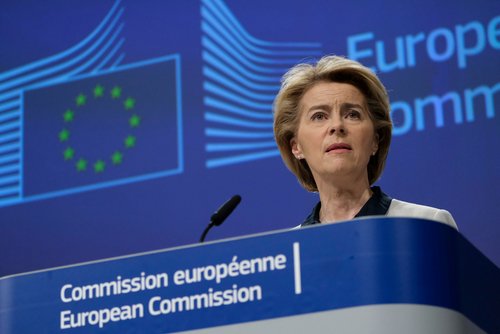Belgium, (Brussels Morning Newspaper) The European Commission announced plans to send humanitarian aid worth 30 million euro to Pakistan.
In a statement released on Tuesday, the EC pointed out that floods recently hit the country and deteriorated the humanitarian situation.
Janez Lenarčič, European Commissioner for Crisis Management, visited Pakistan and pointed out that EU’s humanitarian aid will go towards urgent needs including water and food, shelter, education, health protection and sanitation, among other.
He pointed out that aid will be provided to most affected areas of Pakistan and stressed “people in Pakistan are suffering the devastating consequences of an unprecedented flooding emergency.”
Lenarčič noted that floods killed many people and caused a lot of damage, adding that the EC’s move shows the body “stands by the most vulnerable to help them fulfil basic needs.”
He expressed belief that global warming caused the floods and added “mainstreaming disaster preparedness and prevention in EU funded projects will therefore remain our top priority within the provision of humanitarian assistance.”
Meetings with officials
As part of his visit to Pakistan, Lenarčič attended meetings with Prime Minister Shehbaz Sharif, junior Minister of Foreign Affairs Hina Rabbani Khar and UN representatives.
He visited the water purification facility donated by Denmark through EU mechanisms as well as EU-funded projects.
After his visit, Lenarčič attended meetings with humanitarian organisations to discuss the situation in Pakistan.
The Commission reminded that heavy rains hit Pakistan in June this year, during the monsoon season, with national authorities reporting more than 1,600 deaths and 12,800 injuries. Authorities estimate that flooding affected more than 33 million people and noted that nearly 8 million were displaced.
EU humanitarian staff assessed the situations in most affected regions and proposed ways to best support the country. Immediately after the flooding, the EC released aid worth more than 2 million euro and coordinated humanitarian offers from bloc members Austria, Belgium, Denmark, France, Greece, Slovenia and Sweden.
As part of the response, the bloc deployed a team of experts to coordinate aid efforts and support operations. The EU also used its satellite service to gather data and help with the assessment of the humanitarian situation.




